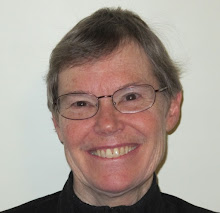Today is the last day of February, thus the closing of "Black History Month."
For me, it feels more like an opening. This evening I attended a Zoom session with people interested in researching Black history in New England. When I introduced myself as a Danvers native and mentioned my recent discovery of an ancestor who had African slaves, another participant reached out to me. She is already in touch with people who are researching people of color who were enslaved in Danvers. We've exchanged email addresses. I don't know where this will lead, but it feels like an important opening... an invitation for me to learn more.
The Zoom meeting was hosted by Atlantic Black Box, an organization that has been offering many good educational programs. "What Happened Here" is the title of their speaker series. Out of curiosity, I tend to listen in. I've enjoyed several of their programs this winter – without officially joining them.
Last week's program pulled me in. I'd already heard a bit about Phillis Wheatley, a young African slave who wrote poetry and managed to get her poetry published. I was curious to learn more, so signed up for the February 24 Atlantic Black Box program with Dr. Cornelia Dayton, who would speak of "Lost Years Recovered" – her research into a puzzling gap in the story of Phillis's life. Where did Phillis and her husband go when freed from slavery? Here's an excerpt from the promotion for Feb 24:
Phillis Wheatley Peters (1753 – 1784) was enslaved and educated in the household of prominent Boston merchant John Wheatley. Her poetry brought her unprecedented international fame. Phillis's name was regularly invoked by colonists and her achievements were a catalyst for the fledgling antislavery movement.
Yet in the years when slavery was ending in Massachusetts, Phillis and her husband, now a free Black couple, moved to an interior town north of Boston. Concerted opposition from many neighbors made it impossible for them to stay.
What do the extensive court papers in this case tell us about town politics, race-based hierarchies, access to the law and citizenship, and the final four years of the African-born poet Phillis Wheatley Peters’s life?
I did NOT expect this program to have any connection to Danvers. It isn't really a Danvers story, but...
The "lost years" were spent in Middleton, right next door. The name of a Danvers official was mentioned, and I began to reflect on how very, very close this was to where an early Nichols ancestor first had property (in the Ferncroft area, where today Danvers and Middleton meet).
At the conclusion of that February 24 program, participants were invited to attend a members-only followup discussion Monday, February 28, about doing research re Essex County history. I wanted to be there. So I went to the Atlantic Black Box Project website and paid for a membership.
Here's the description of what I have joined:
Atlantic Black Box is a grassroots historical recovery project that empowers communities throughout New England to research, reveal, and begin reckoning with the region's complicity in the slave trade and the global economy of enslavement while recentering the stories of its racially marginalized groups.
As a retired librarian I'm delighted to meet with these people who are eagerly using libraries, museum archives, and online databases to discover parts of history that had previously been hidden or hard to find. I'm inspired by their willingness to share what they learn, and to seek advice from each other about where to search next.

1 comment:
Curious about what's known of Phillis Wheatley's life in Middlton? See this scholarly article by Cornelia H. Dayton:
"Lost Years Recovered John Peters and Phillis Wheatley Peters in Middleton"
The New England Quarterly (2021) 94 (3): 309–351.
https://doi.org/10.1162/tneq_a_00901
Post a Comment